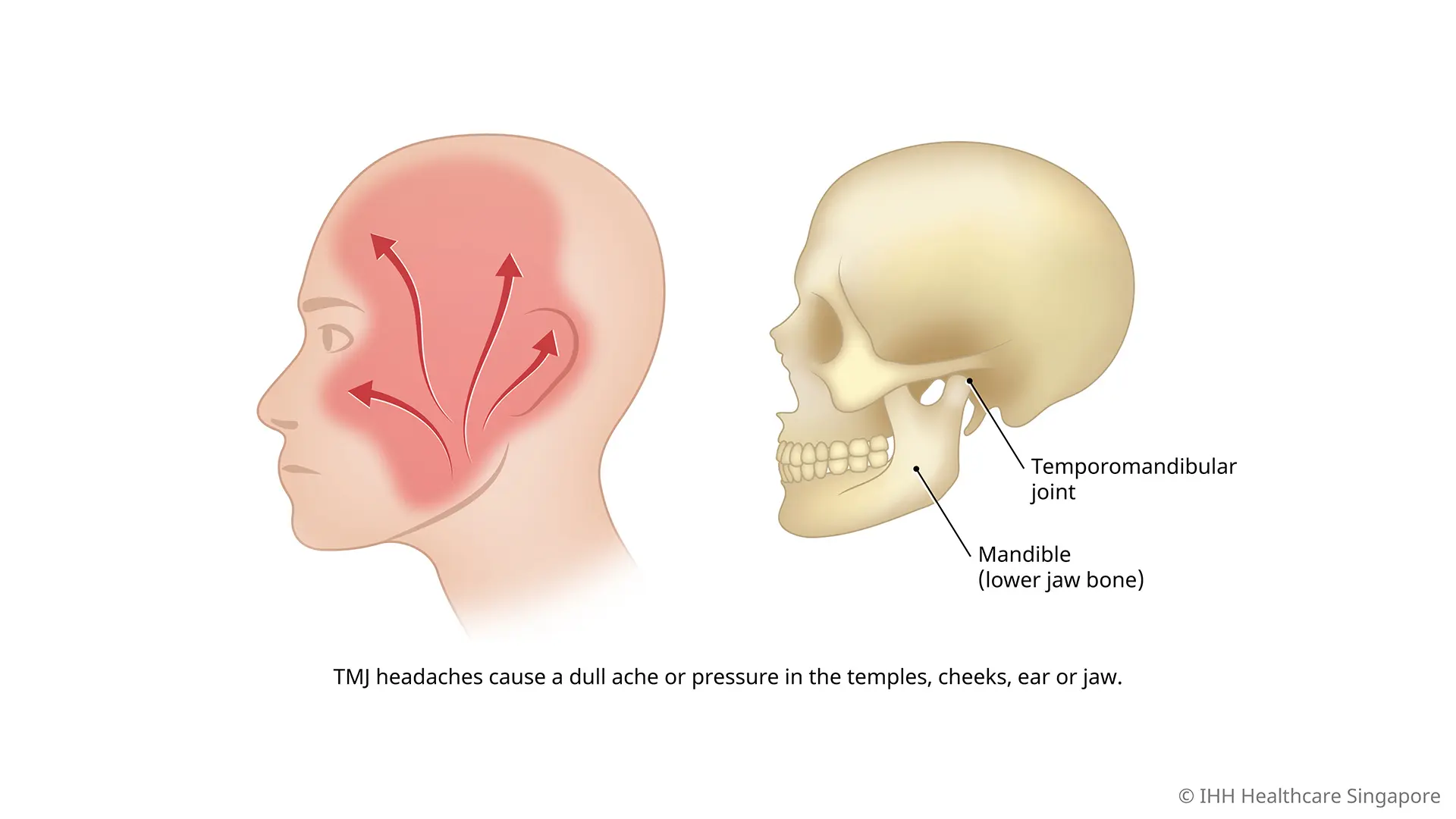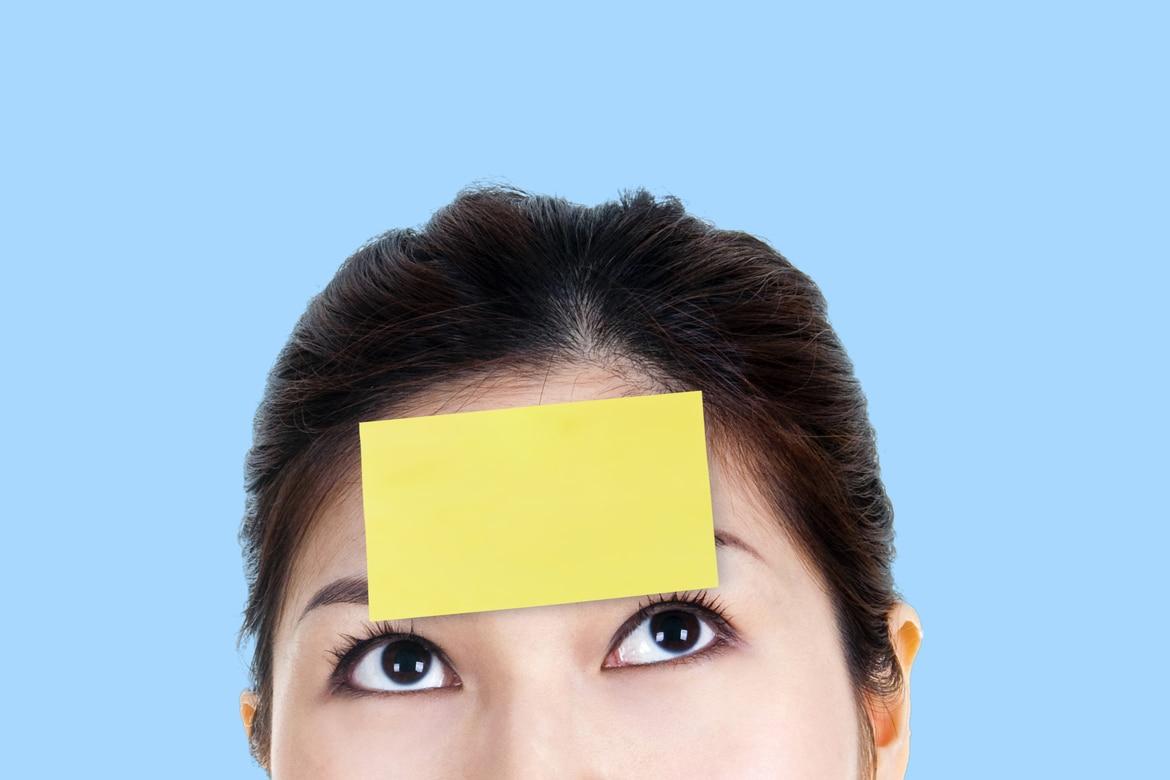
Temporomandibular Joint (TMJ) Headache
What is a temporomandibular joint (TMJ) headache?
A temporomandibular joint (TMJ) headache is a type of headache that originates from issues related to the temporomandibular joint, which connects your jaw to the skull.
Dysfunction or disorders of this joint, known as temporomandibular disorders (TMD), can cause pain that radiates to the head, especially when one moves the jaw. TMD headaches can mimic other types of headaches, making them challenging to diagnose without a thorough examination.
What are the types of temporomandibular joint (TMJ) headaches?
TMJ headaches can be classified based on the underlying issues with the temporomandibular joint:
- Muscle-related TMJ headaches are caused by tension or spasms in the muscles around the jaw.
- Joint-related TMJ headaches result from problems within the joint itself, such as arthritis, disc displacement, or injury.
What are the symptoms of a temporomandibular joint (TMJ) headache?
Symptoms of TMJ headaches can include:
- Pain or tenderness in the jaw joint and surrounding muscles. Chewing, talking, or yawning might be painful.
- Pain in the temples, cheeks, ear or jaw. This is the most common symptom, often described as a dull ache or pressure.
- Headache that starts at the temples and can radiate to the forehead or back of the head
- Difficulty or discomfort while chewing
- Locking of the joint, making it hard to open or close your mouth
- Clicking or popping sounds in the jaw
- Headaches after waking up. Pain might be worse upon waking due to clenching or grinding teeth during sleep.
When to seek medical attention?
You should seek medical attention if:
- You experience persistent or severe jaw pain and headaches
- Over-the-counter medications do not relieve the pain
- The jaw pain is accompanied by difficulty chewing, speaking, or opening your mouth
- You notice clicking or popping sounds when moving your jaw
- You experience facial swelling on one or both sides of your face
- You experience ear pain accompanied by hearing loss
When to visit urgent care centre?
Visit an urgent care centre if:
- You experience sudden, severe jaw pain and headache that is different from your usual symptoms
- You have difficulty opening or closing your mouth
- The pain is accompanied by swelling or signs of infection, such as fever
- You experience vision changes, dizziness, or neurological symptoms
What causes a temporomandibular joint (TMJ) headache?
TMJ headaches are caused by dysfunction or disorders of the temporomandibular joint and surrounding structures. Potential causes include:
- Jaw injury due to trauma to the jaw or head, causing damage to the temporomandibular joint.
- Arthritis, including degenerative joint diseases like osteoarthritis or autoimmune disorders like rheumatoid arthritis, leading to inflammation and pain in the TMJ.
- Bruxism, which refers to chronic teeth grinding or clenching, often related to stress or sleep disorders.
- Malocclusion, which refers to misalignment of the teeth or bite.
- Disc displacement, which refers to the disc within the joint slipping out of its proper position.
What are the complications of temporomandibular joint (TMJ) headache?
While TMJ headaches themselves are not life-threatening, chronic pain and dysfunction can lead to complications that affect your quality of life if left untreated, such as:
- Chronic pain and discomfort
- Difficulty eating and speaking due to reduced jaw function
- Increased risk of dental problems, such as tooth wear and damage
- Potential for worsening joint damage and arthritis
- Earaches, tinnitus (ringing in the ears), and even hearing loss in some cases
- Impact on quality of life due to persistent pain and functional limitations
Additionally, neglecting medical attention for TMJ problems might lead to:
- Progressive damage to the joint itself, potentially requiring more complex treatment interventions in the future.
- Heightened risk of developing chronic headaches in general.
How do you prevent temporomandibular joint (TMJ) headaches?
While there's no guaranteed way to completely prevent TMJ headaches, several strategies can help reduce their frequency and severity. It involves managing risk factors and adopting healthy habits:
- Reduce stress through relaxation techniques, such as meditation, yoga, or deep breathing exercises.
- Use a mouthguard at night if you grind your teeth.
- Ensure proper alignment of your head, neck, and shoulders to reduce strain on the TMJ.
- Avoid hard or chewy foods that can strain the jaw.
- Monitor and manage any dental issues that could affect the TMJ.
This page has been reviewed by our medical content reviewers.
Need help?
For enquiries, please call
+65 6250 0000 (Orchard) or +65 6898 6898 (Novena)
For appointment bookings, please WhatsApp
+65 8111 7777 (Orchard) or +65 8111 5777 (Novena)
 Brain & Spine Care
Brain & Spine Care








